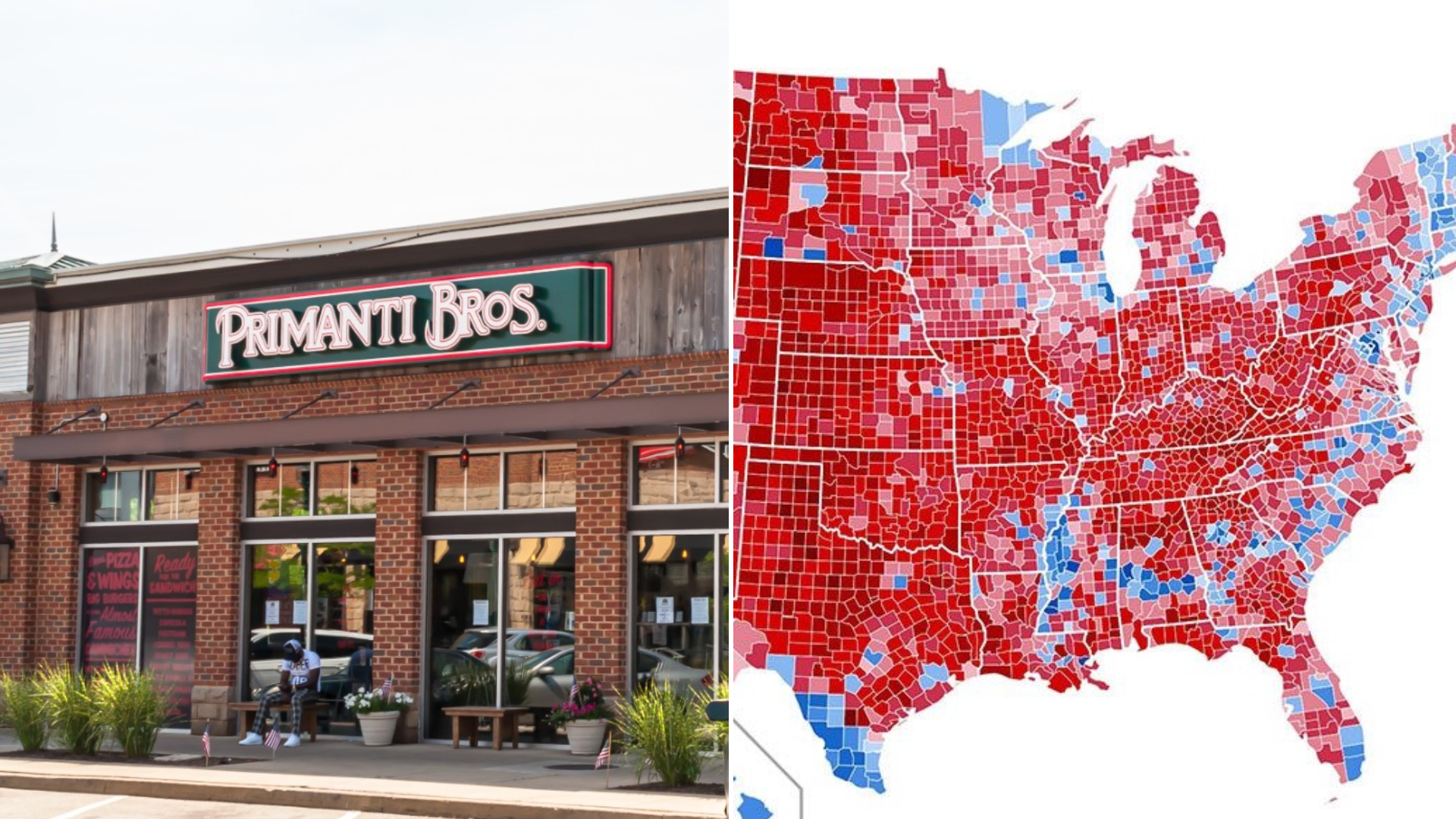Primanti Bros, the well-known Pittsburgh-based sandwich chain, has made a controversial decision to close all of its franchises in red states, citing that “That’s not the America we want.” This move has sparked a national conversation about the role of businesses in politics, with many questioning the company’s decision to take such a public stand on its values.
Founded in Pittsburgh, Primanti Bros has become famous for its distinctive sandwiches, which are piled high with fries, coleslaw, and various meats. The chain grew from a regional favorite to a national presence with multiple locations across the country. However, its decision to shut down franchises in conservative states signals that it has chosen to take a bold stand on social issues, even if it means sacrificing a part of its customer base.
By closing its red-state locations, Primanti Bros is sending a clear message about the company’s stance on what it considers to be important social issues. Though the company has not fully explained its reasoning, the statement “That’s not the America we want” hints at a disagreement with the political climate in certain areas. It is likely that issues like LGBTQ+ rights, racial justice, or gender equality play a role in the company’s decision. Primanti Bros seems to be aligning with progressive values, signaling that it is willing to prioritize these values over financial success.
The company’s move has garnered both support and backlash. Advocates for the decision believe that businesses should be socially responsible and use their platforms to advocate for justice and equality. They argue that companies should stand up against discrimination and promote inclusivity, especially in an era where many corporations are becoming more vocal on social issues. To these supporters, Primanti Bros’ actions show a commitment to a more progressive America, one that values diversity and equal rights.
However, the decision has also drawn criticism, particularly from those who believe businesses should avoid taking political stances. Critics argue that Primanti Bros is alienating potential customers who do not share its political ideology, and that the chain should focus on delivering quality food and service instead of getting involved in political issues. For these individuals, the move represents a politicization of a brand that should be about serving great food, not making statements on controversial topics.
Many people in the red states where Primanti Bros is closing its locations feel disappointed or even outraged by the company’s stance. Some feel the closures are unjust, punishing local customers who may have no part in the broader political or social issues the company is protesting. Others believe the chain is being hypocritical, attempting to force its political beliefs on those who simply want to enjoy a meal.
Despite this, there are also those who support the idea that businesses should be more involved in shaping the cultural and political discourse. They argue that companies, particularly those with a national reach, have the power to influence important social and political movements, and they should not shy away from standing up for values like equality, human rights, and social justice. In their view, Primanti Bros’ decision could inspire other companies to use their influence to push for social change.
The fallout from this decision raises broader questions about the role businesses should play in political discussions. Should companies take public stances on social issues? If so, how involved should they be in the culture wars that dominate the political landscape? These questions have become more pressing as businesses have become increasingly vocal about political matters in recent years. The Primanti Bros situation exemplifies the growing intersection of business and politics in America today.
The long-term impact of this decision on the chain’s future remains uncertain. While the closures may cause the company to lose customers in red states, it may also build support among those who share its progressive values. In the end, this decision could help Primanti Bros carve out a niche for itself among socially conscious consumers or it could result in a more polarized brand.
Primanti Bros’ decision to close its red-state franchises has created ripples in the larger conversation about the responsibility of businesses in shaping public discourse. Whether the move will prove to be a wise business strategy or a costly mistake is yet to be seen. What is clear, however, is that the company has sparked an important debate on the role of corporations in politics and the influence that businesses can have on shaping the social and cultural landscape of America. The lasting consequences of this decision may be felt not just by Primanti Bros, but by the broader business world as companies continue to navigate the complex relationship between commerce, politics, and social values.
This is SATIRE, It’s Not TRUE
